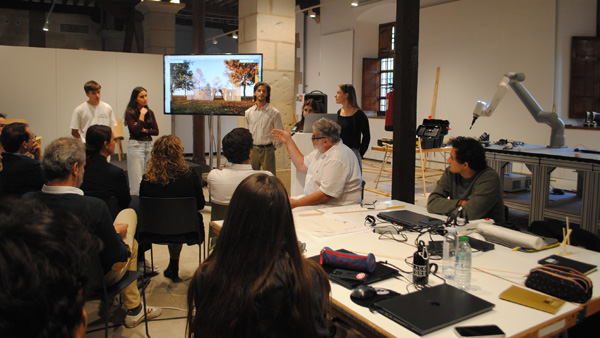M-ZERO BAI Workshops
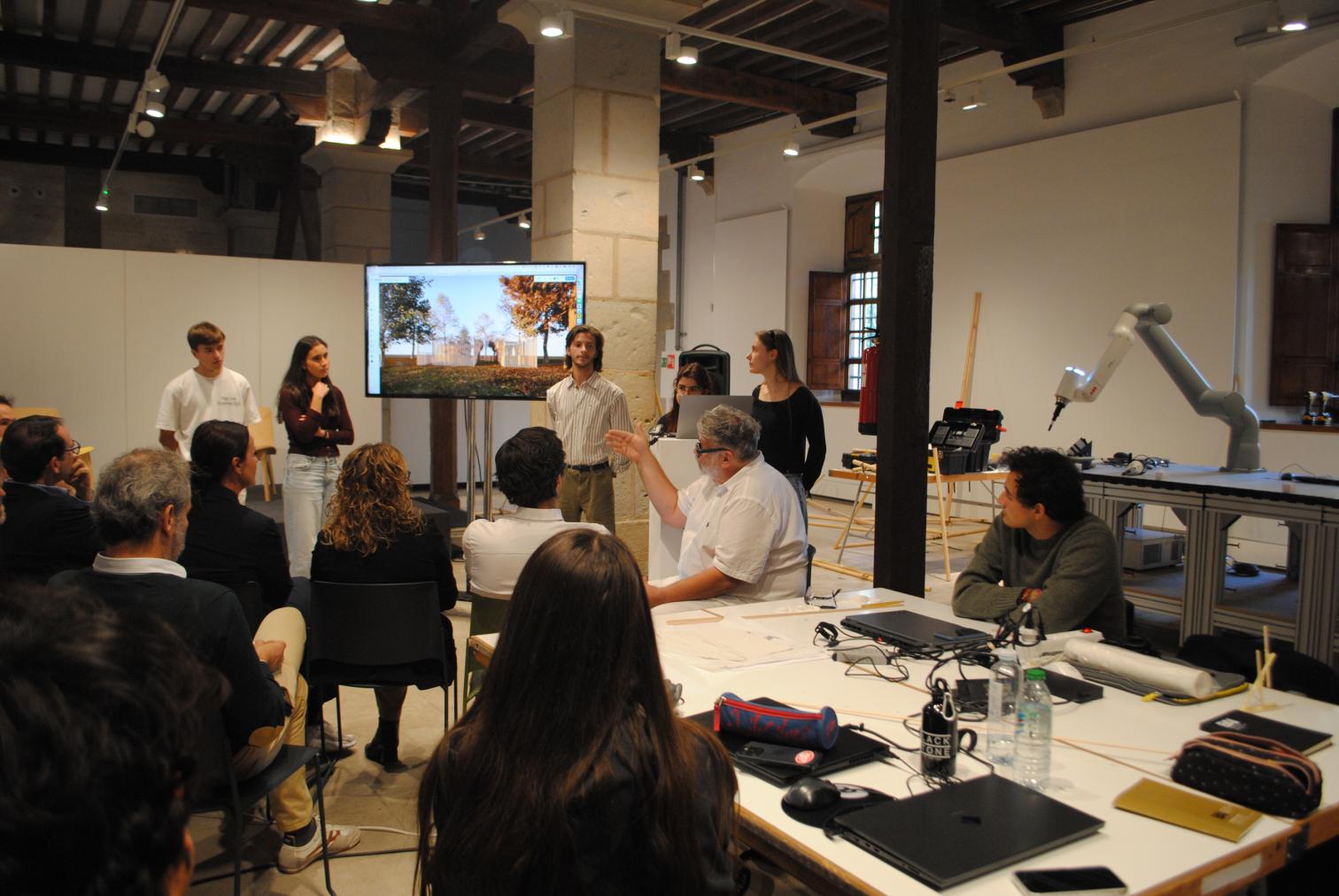
During M-Zero, a large team of internationally renowned professors, lecturers, and engineers trains participants to program a robot that collaborates with designers to create a living space defined by criteria of innovation and robotization but endowed with recognizable and largely replicable environmental qualities.
M-Zero is an introductory course to Workshop 1 of BAI’s Postgraduate Program, the objective of which is to create a research and practice environment that favors a creative interaction between architecture and industry through design. This module provides students with intensive and specific training in the management of systems and tools linked to the new paradigm of ‘digital craftsmanship,’ from 3D printers to robotic arms, via computational design software and other industrialization, prefabrication, and executive control systems. The relationship with technology is not approached from the simple adaptation or even submission to technique, but from the pragmatic and ethical control of technique through architecture. The fundamental question is how we can harness the potential of new technologies from and for design, with the goal of improving people’s lives.
Through a direct and fruitful dialogue with the professors, participants become familiar with the process of installing, programming, setting up, and operating robotic arms, while learning about the potential of new technologies in the development of quality contemporary projects. In the first edition of M-Zero, wood is the primary working material: its performance, formal and geometric possibilities, constructive possibilities, and environmental behavior are all subjects of study. Wood, together with new technologies in computational design and digital manufacturing, forms the basis for the development of space prototypes throughout two four-day intensive blocks.
The workshop’s first edition is held in a unique historical setting: the Sala de Armas (Arms Room) of the Citadel of Pamplona. This place, built in the 19th century, is the stage for the discussion on the innovative, transformative, and social ideas underlying the BAI project.
KEY DATA
Program:
M-Zero/Workshop 1: 21-24 October 2025, Sala de Armas (Arms Room) of the Citadel of Pamplona. Participants become acquainted with computational design and robotic manufacturing through the development of an architecture exercise.
M-Zero/Workshop 2: 4-6 November 2025, Sala de Armas (Arms Room) of the Citadel of Pamplona. A full-scale prototype is developed and manufactured with the help of a large robotic arm.
Professors:
Andrea Deplazes, ETH Zürich Professor and BAI ProgramResearch Director.
Jonathan Benhamu, BAI Research Associate.
Jesús Medina, architect specialist in robotic construction at ETH Zürich and professor at BAI.
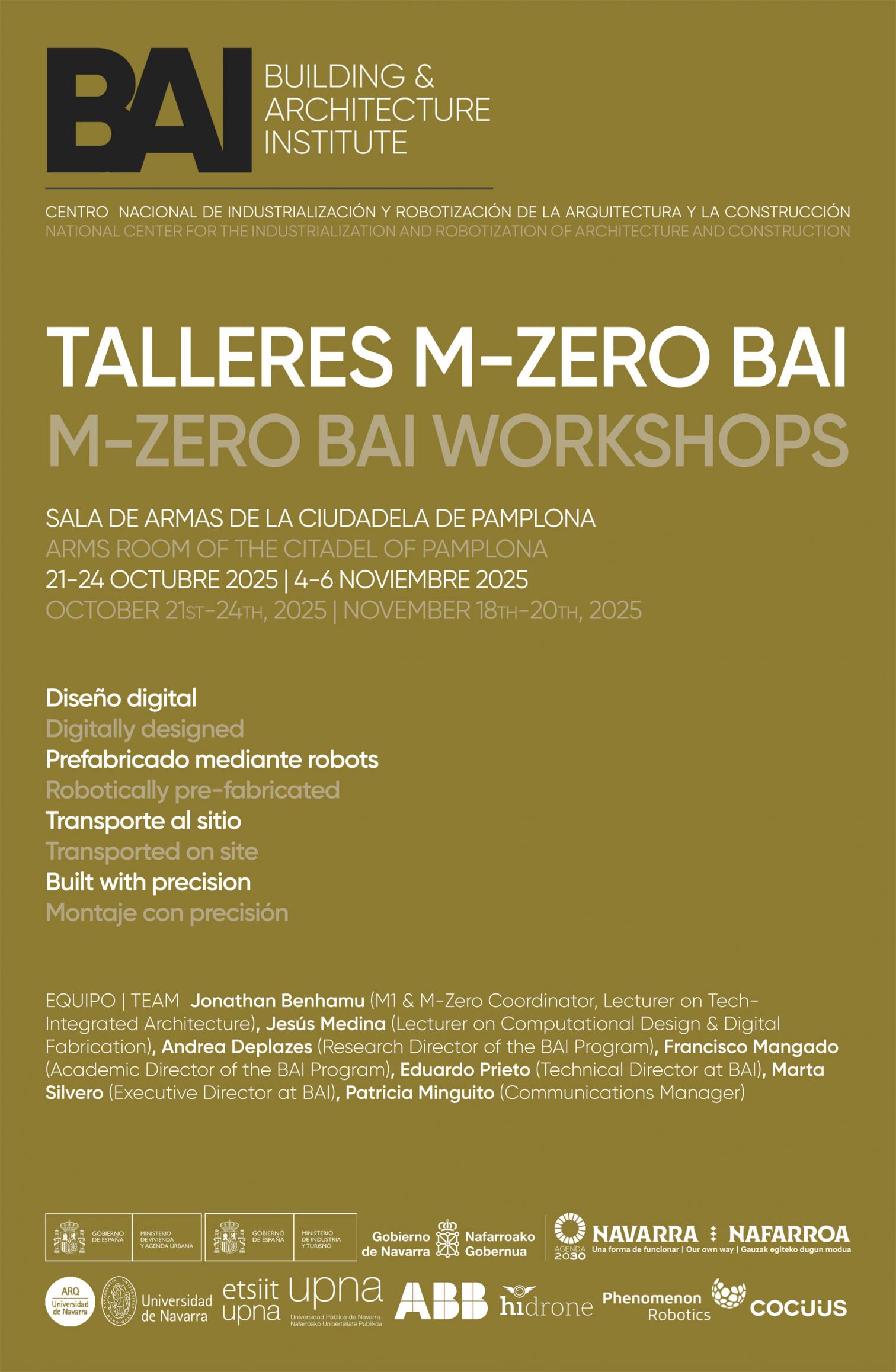
Photography and videos from the first edition of the workshop
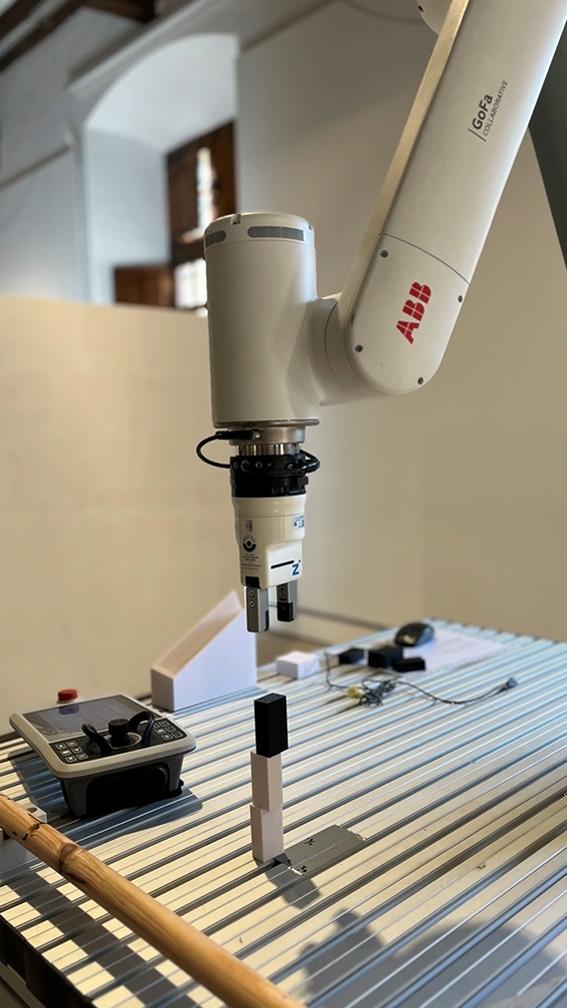
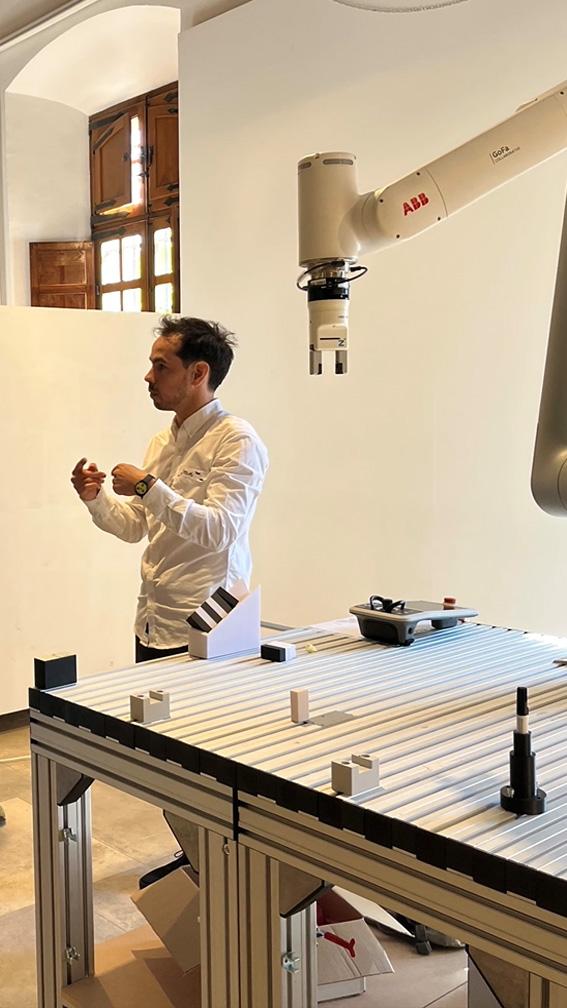
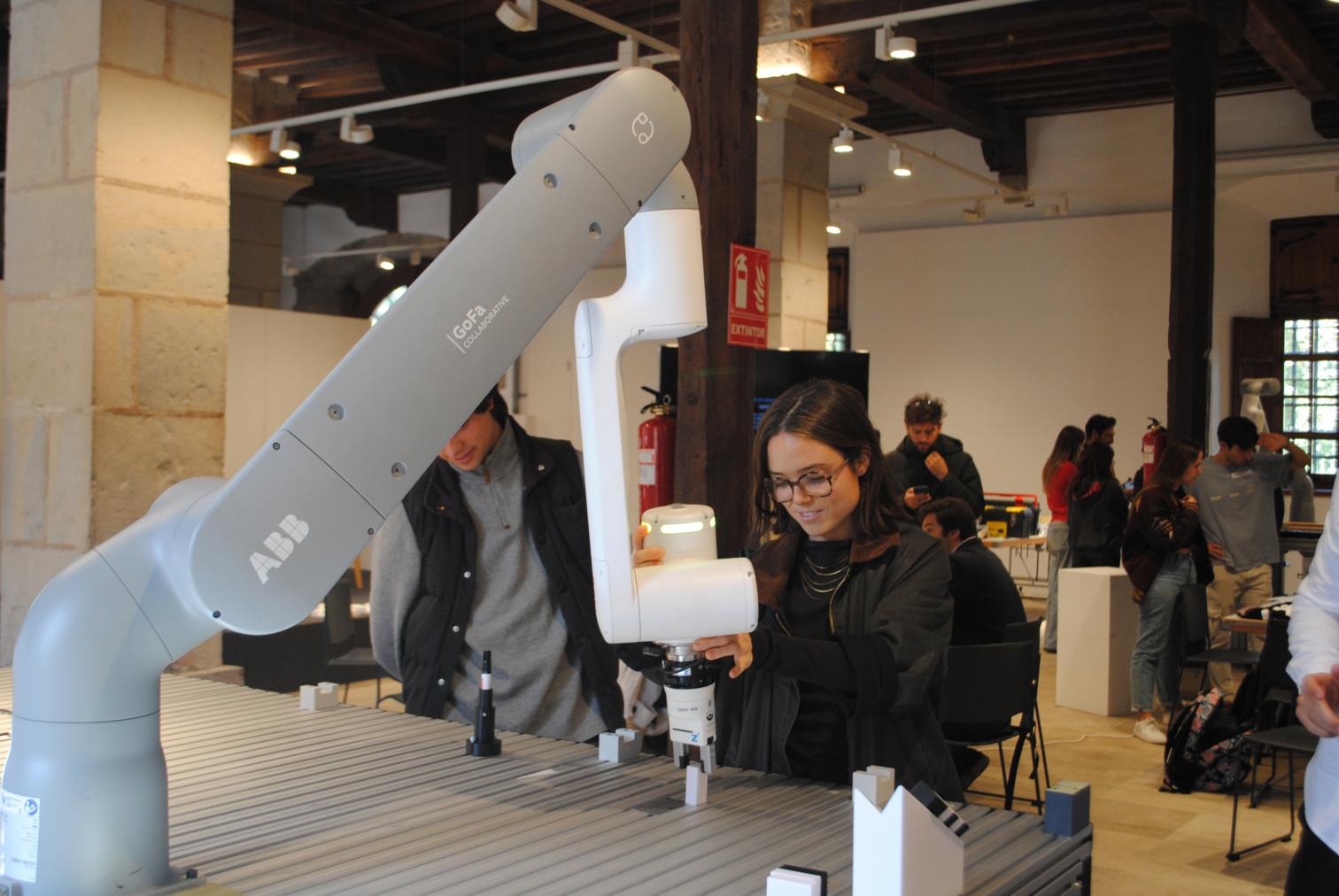
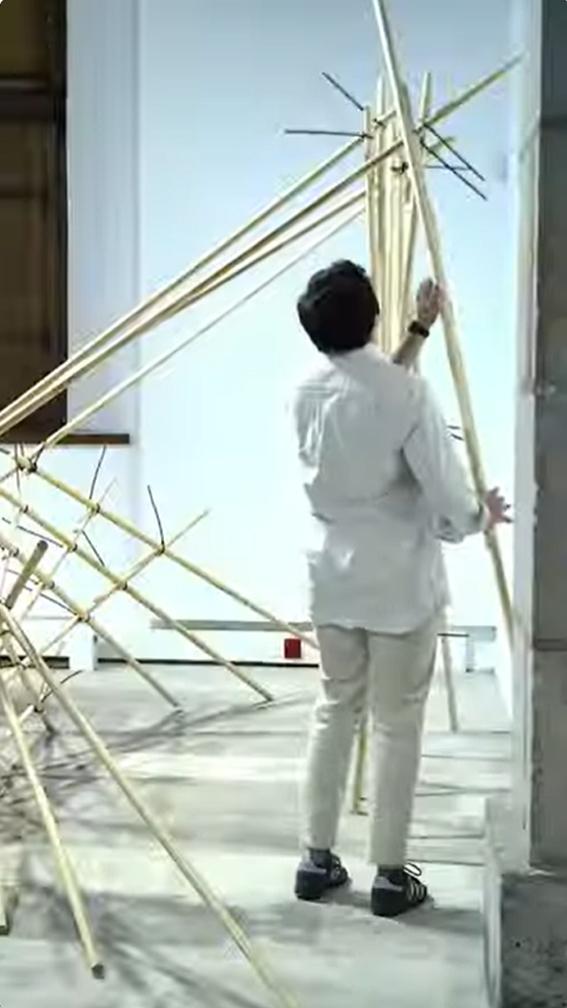
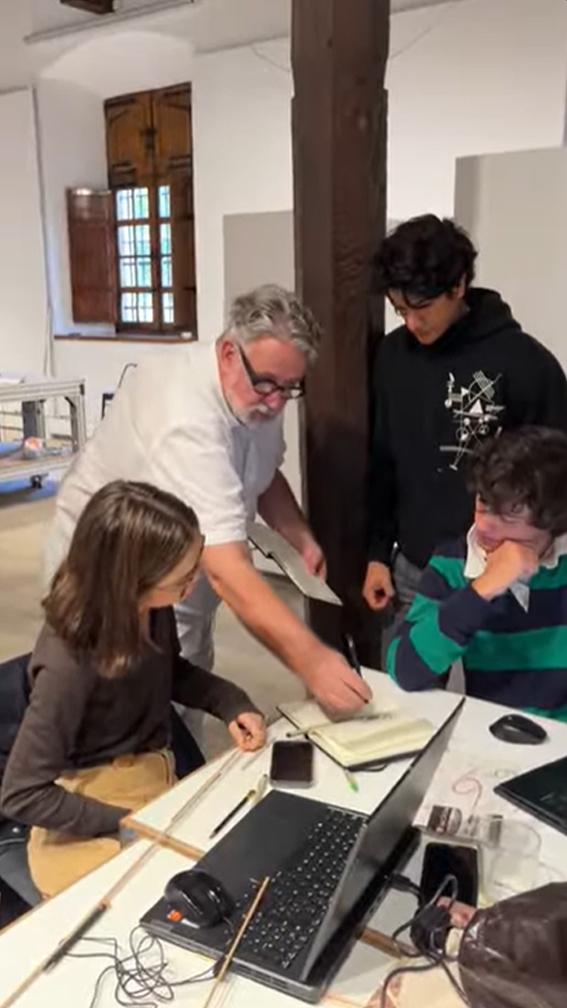
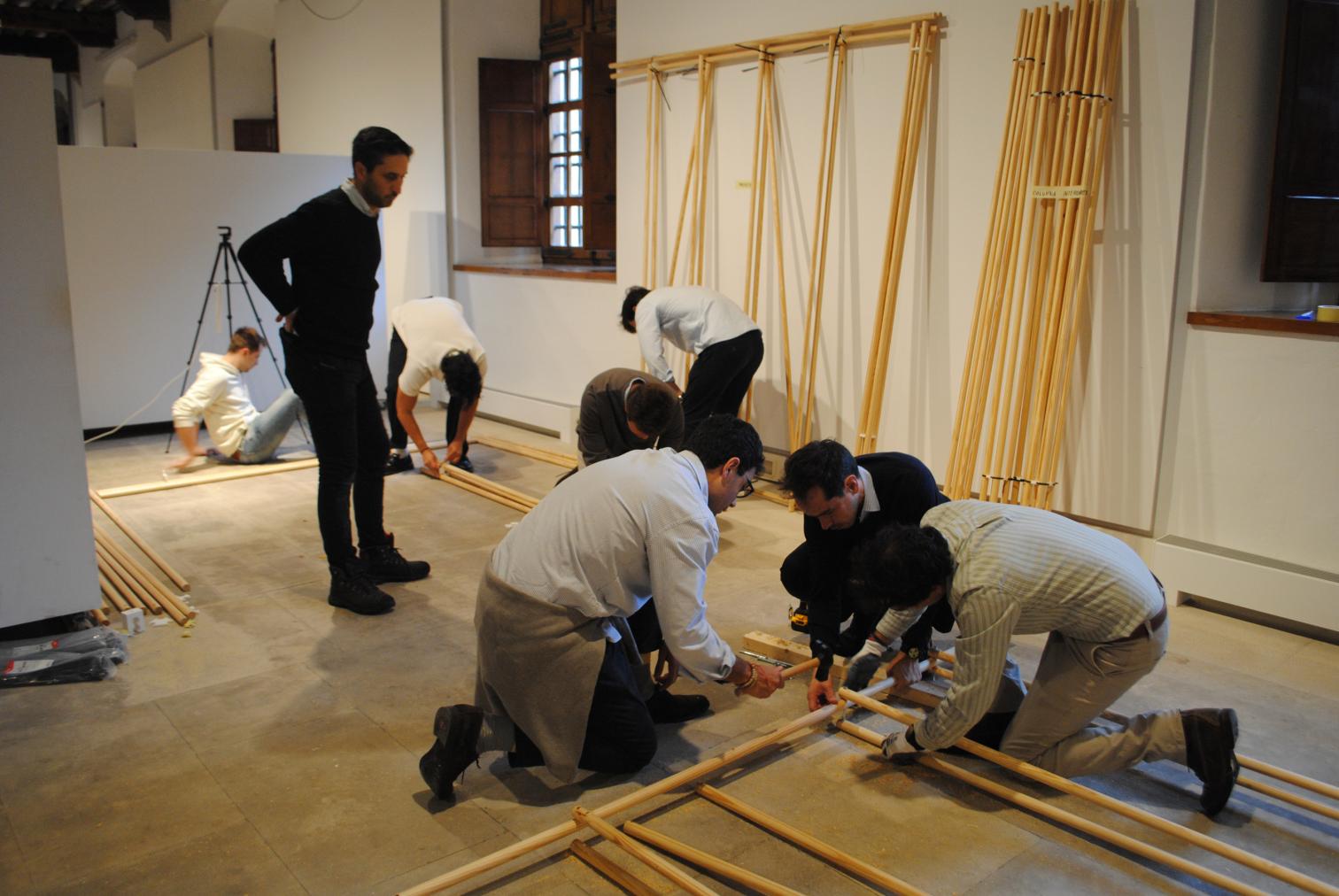
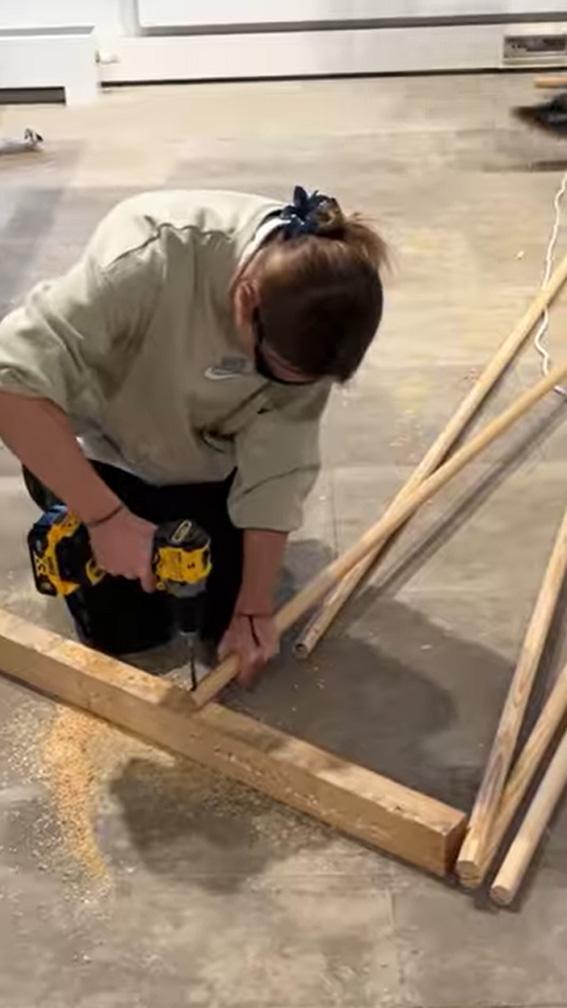
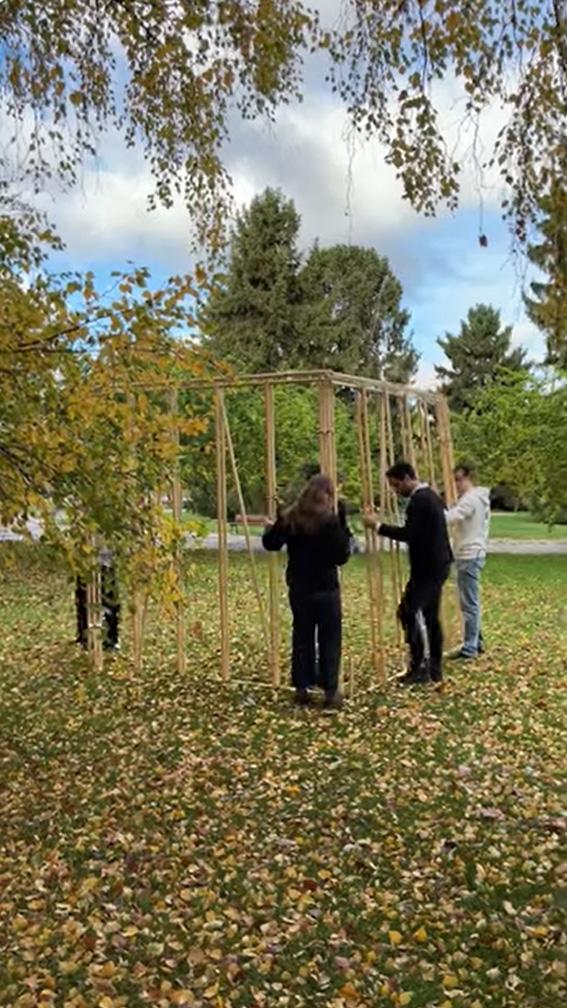
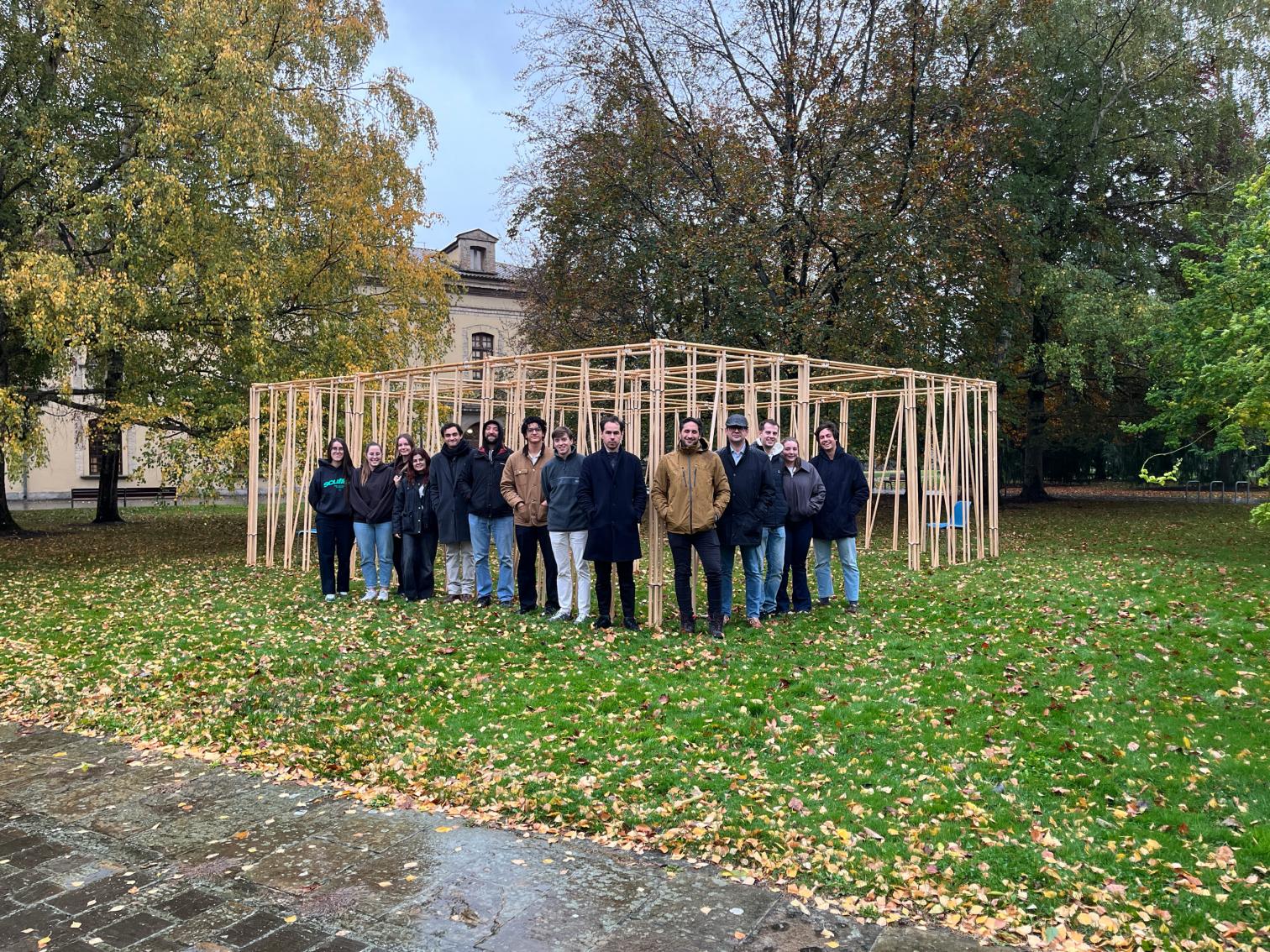
Results of the projects developed by the students
Plans, images, and virtual reality

